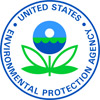EPA Settles Alleged Clean Air Act Violations with BCP Ingredients Inc. in Verona, Missouri

LENEXA, KAN. (DEC. 3, 2024) – On Dec. 2, 2024, the U.S. Environmental Protection Agency (EPA) and U.S. Department of Justice (DOJ) announced a settlement with BCP Ingredients Inc. to resolve alleged violations of the federal Clean Air Act at its Verona, Missouri, facility.
According to EPA, the company had a release of ethylene oxide (EtO), a toxic and flammable substance, and failed to comply with regulations intended to protect workers and the surrounding community and the environment from chemical releases.
BCP manufactures choline chloride, which is an animal feed additive and requires EtO in its manufacturing process. It also repackages EtO for other users.
“In addition to violating the Clean Air Act, BCP’s facility is located in a community that has environmental justice concerns and increased exposure to pollutants from several sources.” said EPA Region 7 Enforcement and Compliance Division Director David Cozad. “This settlement represents EPA and the Biden-Harris administration’s commitment to protecting all communities, especially those overburdened by environmental harm.”
Pursuant to the settlement, the company has agreed to:
- Pay a $300,000 civil penalty.
- Invest in a state-of-the-art scrubber system that is estimated to remove up to 16,550 pounds of additional EtO air emissions over its useful life.
- Spend $350,000 to implement projects benefiting the surrounding community, including providing:
- Emergency equipment for the Verona Fire Department.
- Two vehicles to be used as mobile health clinics.
- Localized medical services through the Cox Health Foundation to communities at or near the facility, including the cities of Verona, Aurora, and Monett, and Barry and Lawrence counties in Missouri.
Ethylene oxide (EtO) is a hazardous air pollutant that is associated with potential health risks for acute and long-term exposure, including increased risk of certain cancers.
EPA conducted an inspection in June 2022, after an EtO release at the facility in April 2022. EPA determined that BCP violated the Clean Air Act by:
- Failing to develop operating procedures and conduct hazard analyses for preventing and/or responding to accidental releases of EtO.
- Failing to fix malfunctioning EtO alarms, which allowed the April 2022 EtO release to continue for over seven hours.
- Failing to conduct required audits of the facility’s compliance with the Clean Air Act and correct deficiencies identified in prior audits.
- Failing to conduct annual coordination with emergency responders.
- Failing to have written safety information for the facility’s ventilation system.
- Failing to update the facility’s Risk Management Plan every five years.
BCP agreed to enter into a compliance order with EPA in September 2022 to address these alleged violations and return the facility to compliance. EPA says that BCP has met all the requirements of the compliance order.
The consent decree, lodged in the U.S. District Court for the Western District of Missouri, is subject to a 30-day public comment period and final court approval.
Background
The Clean Air Act’s Risk Management Plan regulations require facilities that use regulated toxic and/or flammable substances to develop a plan that identifies the potential effects of a chemical accident; identifies steps a facility is taking to prevent an accident; and spells out emergency response procedures should an accident occur. These plans provide valuable information to local fire, police, and emergency response personnel to prepare for and respond to chemical emergencies in their community.
EPA has found that many regulated facilities are not adequately managing the risk that they pose or ensuring the safety of their facilities in a way that is sufficient to protect surrounding communities. Reducing risks from accidental releases of hazardous substances at industrial and chemical facilities is a top priority for EPA, which identified this goal as one of six National Enforcement and Compliance Initiatives in 2024.
EPA is also strengthening enforcement in communities that may be experiencing adverse human health or environmental effects of industrial operations on vulnerable populations.
- Learn more about EPA’s environmental justice efforts.
- Learn more about EPA’s Risk Management Program.
# # #
Learn more about EPA Region 7
View all Region 7 news releases
Visit the Region 7 Media page
Connect with EPA Region 7 on Facebook and Instagram
Follow us on X: @EPARegion7
